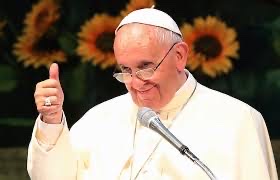Kurgan's Dilemma
The Council of Trent, which took place between 1545 and 1563, was the Church’s response to the heresies that were being spread due to the Protestant “Reformation”, that loosely began with the publication of Martin Luther’s “Ninety-five Theses”, in 1517.
This Ecumenical (Universal) Council’s purpose was doctrinal. The purpose was to infallibly “set in stone” some of the core dogmatic beliefs that were being denied and distorted by the Protestant revolution.
If you read through the decrees of the Council of Trent, you will notice that a specific formula is being used. It’s an IF/THEN formula. It goes like this:
IF (You believe any of the following statement);
THEN (let you be “anathema”)
ANATHEMA defined:
1 - A formal ecclesiastical ban, curse, or excommunication
2 - A vehement denunciation; a curse.
3 - One that is cursed or damned.
Needless to say, if you are said to be “anathema”, that’s really, really bad. You are cursed and eventually kicked out of the Church
These IF/THEN statements can also be rewritten as YES/NO questions.
IF (you answer YES to any part of this statement)
THEN ( you are anathema, because you must answer NO to all parts of the question)
For Example:
Council of Trent, session 7, canon 9,
“If any one saith, that, in the three sacraments, Baptism, to wit, Confirmation, and Order, there is not imprinted in the soul a character, that is, a certain spiritual and indelible Sign, on account of which they cannot be repeated; let him be anathema.”
It can be rephrased like this:
Do the Sacraments of Baptism, Confirmation, and Holy Orders leave a permanent mark on the soul, and therefore cannot be repeated?
Baptism - YES
Confirmation - YES
Holy Orders - YES
If you answer NO to any part of this question, you are banned, cursed, and excommunicated.
All dogmatic decrees and proclamations are SPECIFIC, SHORT and CONCISE. And likewise, all heretical beliefs also are specific, short, and concise. That is why this format is used, to weed out and expose the liars, deceivers and heretics, by forcing them into an answer that means something. As Jesus said, “Let your yes mean yes, and your no mean no” (Matthew 5:37).
I have posed these two questions to the kurgan on Social Galactic multiple times. They are as follows:
“The Bishops are given the Holy Spirit when they are ordained” YES or NO?
And
“Can a priest ever become "no longer a priest”, and return to the lay state? YES or NO?
The DOCTRINAL answers are YES and NO, respectively.
Here is the statement from the Council of Trent that I am referring to:
"If any one saith, that, by sacred ordination, the Holy Ghost is not given; and that vainly therefore do the bishops say, Receive ye the Holy Ghost; or, that a character is not imprinted by that ordination; or, that he who has once been a priest, can again become a layman, let him be anathema"
Here is KURGAN”S DILEMMA:
If he answers to the contrary (NO and YES), then he is anathema, banned, cursed, and excommunicated - A Heretic.
If he affirms this Catholic doctrine (YES and NO), then the foundation of his belief system, that canon 188.4 means a loss of clerical state (no longer a priest), is FALSE.
This is why these questions will NEVER be answered directly. The kurgan is wrong, and every time he utters the phrase "no longer a priest" and phrases similar to this, he is showing his ignornace.
His silence says all you need to know.


Comments
Post a Comment